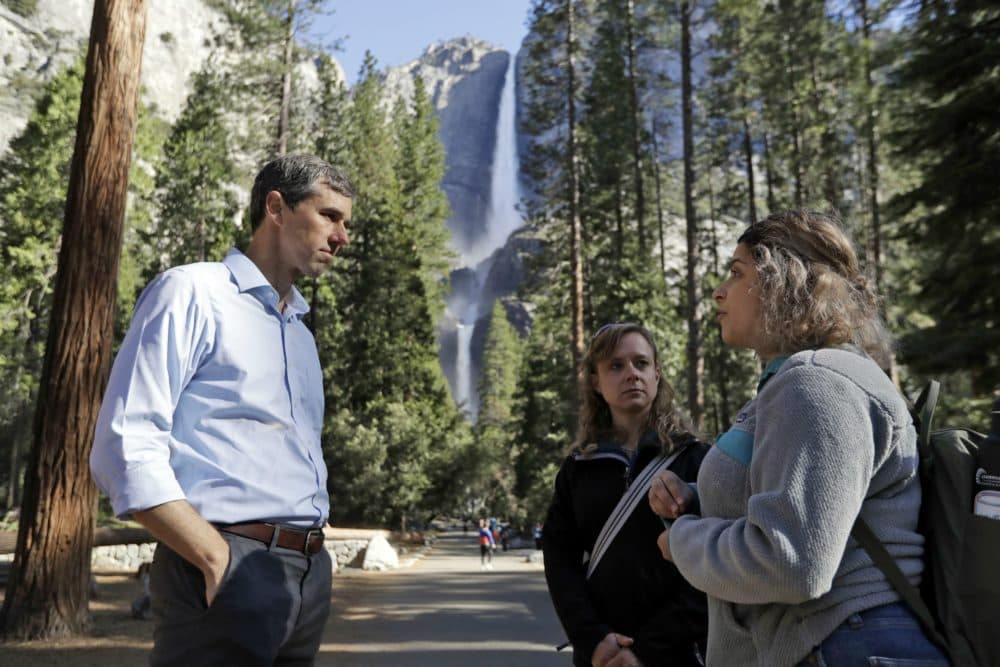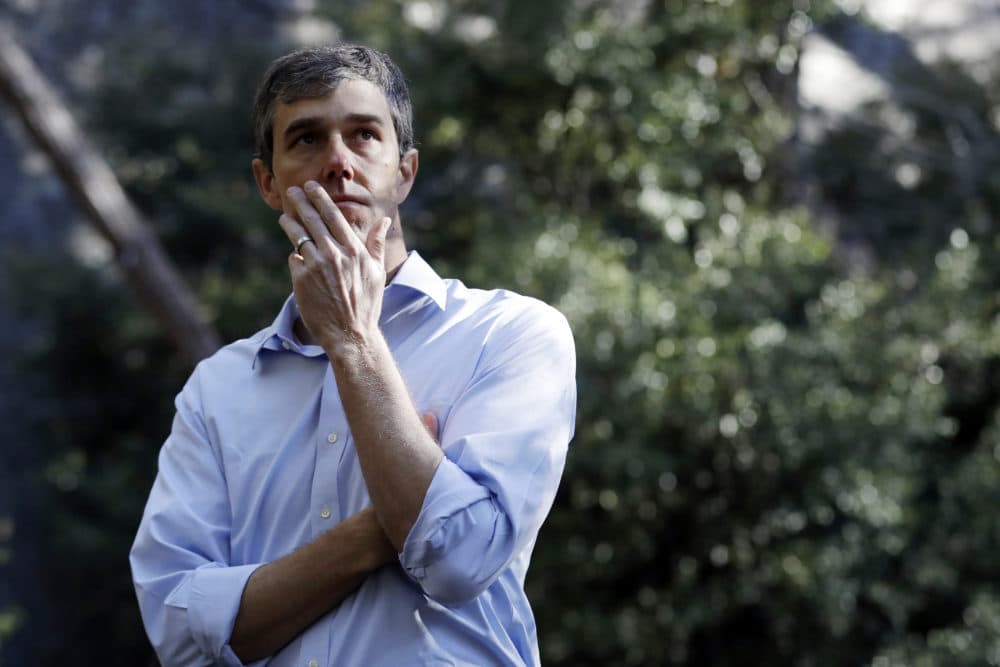Advertisement
commentary
Beto's Unlikely Lead On Climate Change

You saw this coming.
After Ed Markey and Alexandria Ocasio-Cortez launched the Green New Deal last February, it was inevitable that someone in the throng of Democratic presidential candidates would gather up the raw material of that aspirational resolution and attempt to mold it into something resembling a coherent policy proposal.
Improbably, that someone was Beto O’Rourke.
Improbably, because Beto’s environmental record is tarnished by some of the positions he took while representing the well-oiled state of Texas in Congress. In 2015, he voted with Republicans to lift the ban on oil exports. In 2016, he supported a study of offshore drilling in sensitive areas of the Gulf of Mexico. He has dithered on the merits of fracking. In the course of his unsuccessful 2018 Senate campaign, he accepted $430,000 in contributions from people connected to the oil and gas industry (although he has just this week — under pressure from the environmental community -- pledged to take no fossil-fuel money for his presidential bid).
The fossil-friendly factor aside, Beto isn’t known for his big ideas. Unlike some other candidates whose websites are thick with whitepapers, Beto has been characterized in the media as a “blank slate” — energetic and charismatic, but lacking serious policy bona fides.

So the appearance on Monday of a 2,500-word position paper laying out a $5 trillion plan to fight climate change was unexpected. Other candidates have expressed support for the main thrust of Green New Deal, but Beto is the first to put forth a plan that translates the themes of the resolution into a legitimate climate strategy. This was a canny maneuver by the young campaign.
In Iowa, an early primary state, health care was the only issue that likely caucus-goers ranked higher than climate change in a poll last month. Another survey, published by CNN this week, says registered Democratic voters nationwide rank climate change as a “top priority.” With the release of his climate change plan, Beto takes the lead on the issue, gains visibility and forces the other candidates to play catch-up.
His climate framework has four components. First, he vows to restore what President Trump has undone — rejoin the Paris Agreement, bring back restrictions on emissions from power plants, tighten up the rules on methane leakage and end fossil fuel development on public lands. Next, he proposes to invest $5 trillion over 10 years in research and technology seeding that will reduce pollution and foster renewable energy. This includes grant money for public health, energy infrastructure, transportation projects, sustainable agriculture and climate resilience.
Advertisement
Third, the plan aims to drastically cut greenhouse gas emissions by mandating new standards. The assumption here is that legislated reductions in emissions levels will send a clear signal to the markets that will incite innovation and hasten the transition to a green economy. The final component is the climate adaptation piece, focused on preparing the nation’s cities and towns to cope with the effects of climate change that we know are coming.
His proposal nimbly walks a path that is progressive and ambitious without veering into the ideological weeds.
The parallels to the Green New Deal are evident. Beto proposes to rapidly decarbonize the entire economy using investments in infrastructure and technology in tandem with stronger regulations, while maintaining the goal of reaching carbon neutrality by 2050. And by ensuring job creation and the fair treatment of historically marginalized communities, he prioritizes the social justice aspects of the energy transition.
The plan omits parts of the Markey-AOC resolution that evoked the loudest accusations of (gasp) socialism — there is no mention of a government job guarantee or universal health care or outlawing hamburgers. Nevertheless, a Republican spokesperson predictably responded that the plan was “designed to impress his chardonnay swilling coastal elite friends,” and an opinion writer for the conservative Washington Examiner called the plan “climate socialism” and “deeply unserious.”
The Sunrise Movement, a key early supporter of the Green New Deal, criticized Beto’s plan for not being aggressive enough, saying that 2050 was too late for the U.S. to achieve carbon neutrality and demanding instead a 2030 deadline. Given that nobody thinks 2030 is realistic, the Sunrise Movement appears to have taken a giant step toward irrelevancy.
So kudos to Beto. He’s captured the essence of the Green New Deal and produced a politically creditable framework for climate change mitigation and adaptation. His proposal nimbly walks a path that is progressive and ambitious without veering into the ideological weeds.
And it is not quixotic. The 2050 date for carbon neutrality is already the target of numerous governments, including the cities of Boston, Somerville, New York, Chicago and many others, including nations such as the United Kingdom and France. This looks doable.
How will the other Democrats now position themselves? Washington Gov. Jay Inslee, who has tried to establish himself as the climate change candidate, today offered his vision for climate policy. In theory, competing candidates refine and improve on the platforms of their opponents. In the face of the unrelenting threat of climate change, hope rests on the election process generating novel policy prescriptions that will put the country on the right course.
Beto has shown his cards. Soon enough we’ll see if anybody holds a stronger hand in this Green New Deal.
